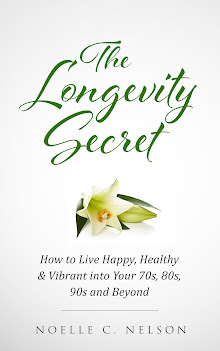The ancient Egyptians had a fairly complicated process by
which they were allowed - or not – to
access what we might now call “Heaven” after their death. Among other things,
they were to approach the gods of the Underworld with a series of negative
affirmations: a recitation of all those things they had not done during their
lifetimes. Sort of a reverse Ten Commandments as in “I have not killed,” “I
have not disrespected my parents,” “I have not stolen.” And one of the negative
affirmations was “I have not eaten my heart.”
Certainly they did not mean literally (yuck!), but rather
the many emotional or mental ways in which we “eat our hearts.” One of the
primary ways being anger.
I was struck by this phrase, as it is scientifically
completely accurate. What the ancient Egyptians could not have known by way of
modern scientific technology, yet assessed perfectly, is that anger literally
“eats our hearts.”
Research shows that “healthy people who are often angry or hostile are 19% more
likely than calmer people to get heart disease. Among people with heart
disease, those who usually feel angry or hostile fared worse than others.”
It’s easy to see
how that works: when you are in
the grip of anger, fear, or other powerful negative thoughts and feelings, your
heart rate becomes chaotic,
irregular, and unpredictable, which means it no longer pumps blood in an
orderly manner to your cells. Such a disordered heart rhythm has nasty consequences,
such as high blood pressure, which in turn contributes to hardening of the
arteries, stroke, kidney disease, and even to the development of heart failure.
Not to mention an early demise: according to the CDC, the leading cause of
death in the US is cardiovascular disease. Who needs that?
So yes, those ancient Egyptians were spot on:
anger does eat your heart. But to be clear, it’s not that occasional “Aargh!!!”
that we all experience that eats our hearts. It’s the anger of past hurts you
keep fueling day after day with resentment or blame. It’s that slow burn of
some perceived injustice that keeps you fuming inside, even though on the
outside your happy face is neatly plastered on. It’s reacting too quickly and
too dramatically to the ordinary frustrations of life.
Don’t eat your heart. Feel that initial spurt
of anger, sure, but as quickly as you can, release it. Express it
appropriately, communicate your feelings in as calm and rational a manner as
you can, and let it go. Practice meditation or mindfulness to help you navigate
life from a calmer place. Do your best to give yourself and others the benefit
of the doubt rather than getting yourself all riled up over whatever.
We are all in this together, you know, and as
hard as it may be to see sometimes – people (you included) are really doing the
best they can in the moment with what they’ve got from where they are. Better
to nourish your heart with appreciation for our shared humanity than to harbor
anger, which in the end only dims your enjoyment of life, and shortens it.
To give you a visual of the difference
appreciation makes to your heart health, here are two graphs, one of your heart
rate when you’re experiencing anger, the other of when you’re experiencing
appreciation. A picture truly is worth a thousand words!







